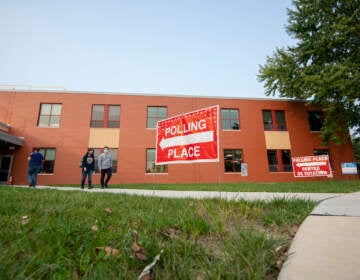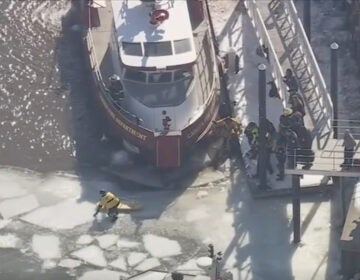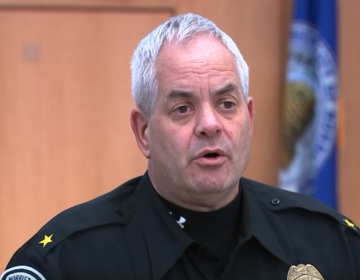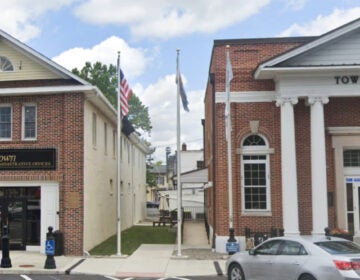Delaware’s largest county adopts ‘Video 911’ to give dispatchers ‘eyes and ears on the scene’
Callers will have the sole discretion to allow dispatchers to access their phone, and the video transmission will stop as soon as the video chat ends.
Listen 2:58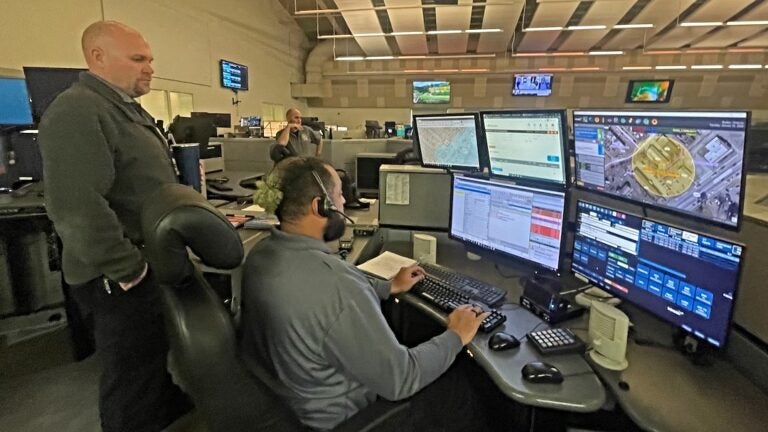
Supervisor Chris Williams observes dispatcher Onassis Burton taking a 911 call at the New Castle County emergency operations center south of Wilmington. (Cris Barrish/WHYY)
From Philly and the Pa. suburbs to South Jersey and Delaware, what would you like WHYY News to cover? Let us know!
A 911 supervisor scans the scene in a parking lot for a suspected burglar while speaking with a caller who is transmitting video from his cell phone.
“We have police on the way? Are you in a safe location?” supervisor Chris Williams inquires.
The caller says he’s not in danger, so Williams continues.
“Describe for me what’s happening, what we’re looking at?
“Yeah, there’s a suspicious person. Looks like they’re trying to break into a police car. The hood is up, so I can’t see who it is.”
“OK, but keep yourself in a safe location,’’ Williams commands. “Don’t put yourself In harm’s way. While doing that, if you’re able to keep her on video, or him, that would be great.”
It’s not a real 911 call, so nobody is trying to break into a cop car.
But what Williams could see was a demo of how New Castle County’s new “Video 911” system works.
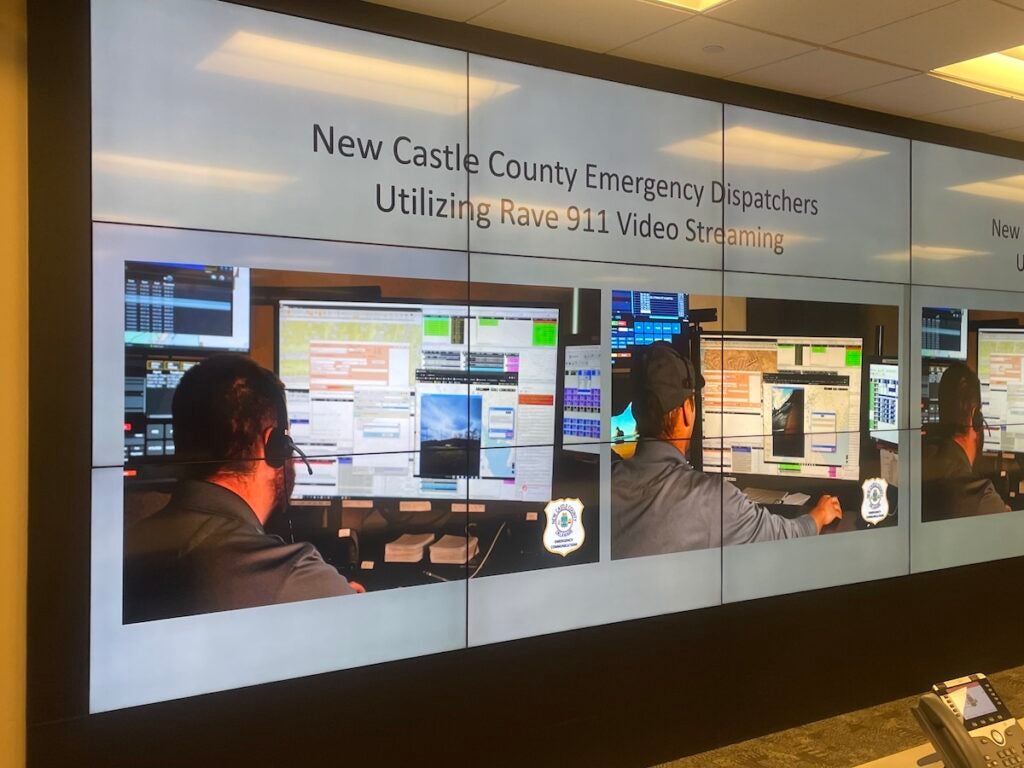
Delaware’s largest county, home to 580,000 people, has enhanced its 911 system for serious situations where dispatchers might want to get real-time visual data from a suspected crime scene.
New Castle County is the first jurisdiction in the state to adopt the technology that dozens of locales across the country now utilize.
“We saw this out there and thought it’d be a very good opportunity for us to get more information for our first responders,’’ said Donald Holden, the county’s acting chief of emergency communications.
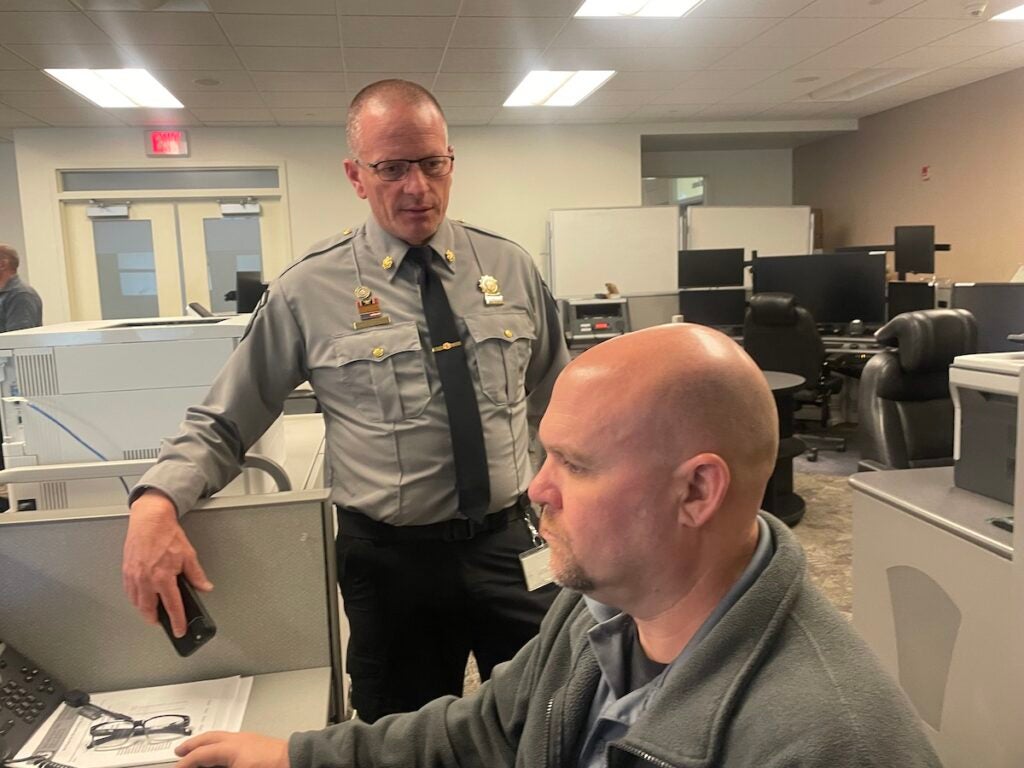
Holden stressed that callers will have sole discretion over whether the government can access their phone feed.
“If you were to call into us and were in a situation where we would deem the video would be very valuable, we would ask your permission,’’ Holden said. “You’d get a text link from us. And you can say ‘yes’ to agree to using your microphone, ‘yes’ to using your camera, and at that point your camera becomes our eyes and ears on the scene.”
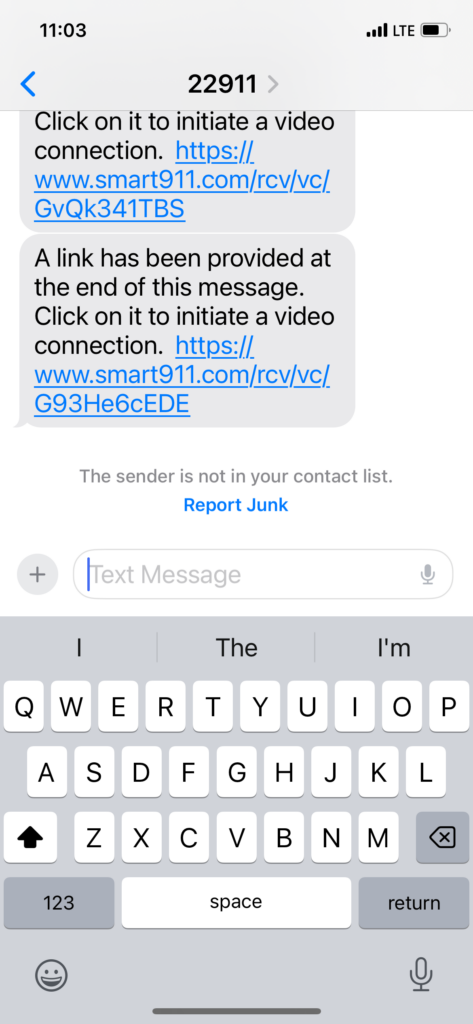
While the county will use footage it obtains to aid investigations and prosecutions, Holden stressed that as soon as a video chat is terminated, the county won’t have further access to the caller’s phone.
Supervisor Chris Williams added that before asking a caller to share their screens, managers who monitor what dispatchers enter into the system will decide whether video would help responders.
“So we’re not just going to randomly solicit video for things that we can just get verbal information from and relay that to the police officers,” Williams said.
“In the case of an active shooter where somebody was hiding in a store and they’re able to stream video of where the people were inside the building, that would be beneficial to the responders to be able to see that information and get that live update as they’re trying to enter the building.”
Dispatcher Onassis Burton says he’s pleased that one of his bosses will make the call to ask for video access.
“Since we get lots of crazy calls and we get lots of crazy texts, we don’t want to receive lots of crazy pictures and videos just immediately,’’ he said.
Burton envisions Video 911 as yet another way to protect citizens in peril. “I think it’s gonna be useful. All tools are useful if they are used right,’’ he said.
County Executive Matt Meyer says it’s all about protecting the public.
“I’ve always thought it was ridiculous, for over a decade, that you can pull out your phone, open up a variety of apps, and call your best buddy anywhere in the world and have a video conversation.”
“But you can’t do it in the most urgent emergency, the most important call you’re gonna make, and that’s a call to 911. We just hope the public uses it.”
WHYY is your source for fact-based, in-depth journalism and information. As a nonprofit organization, we rely on financial support from readers like you. Please give today.



